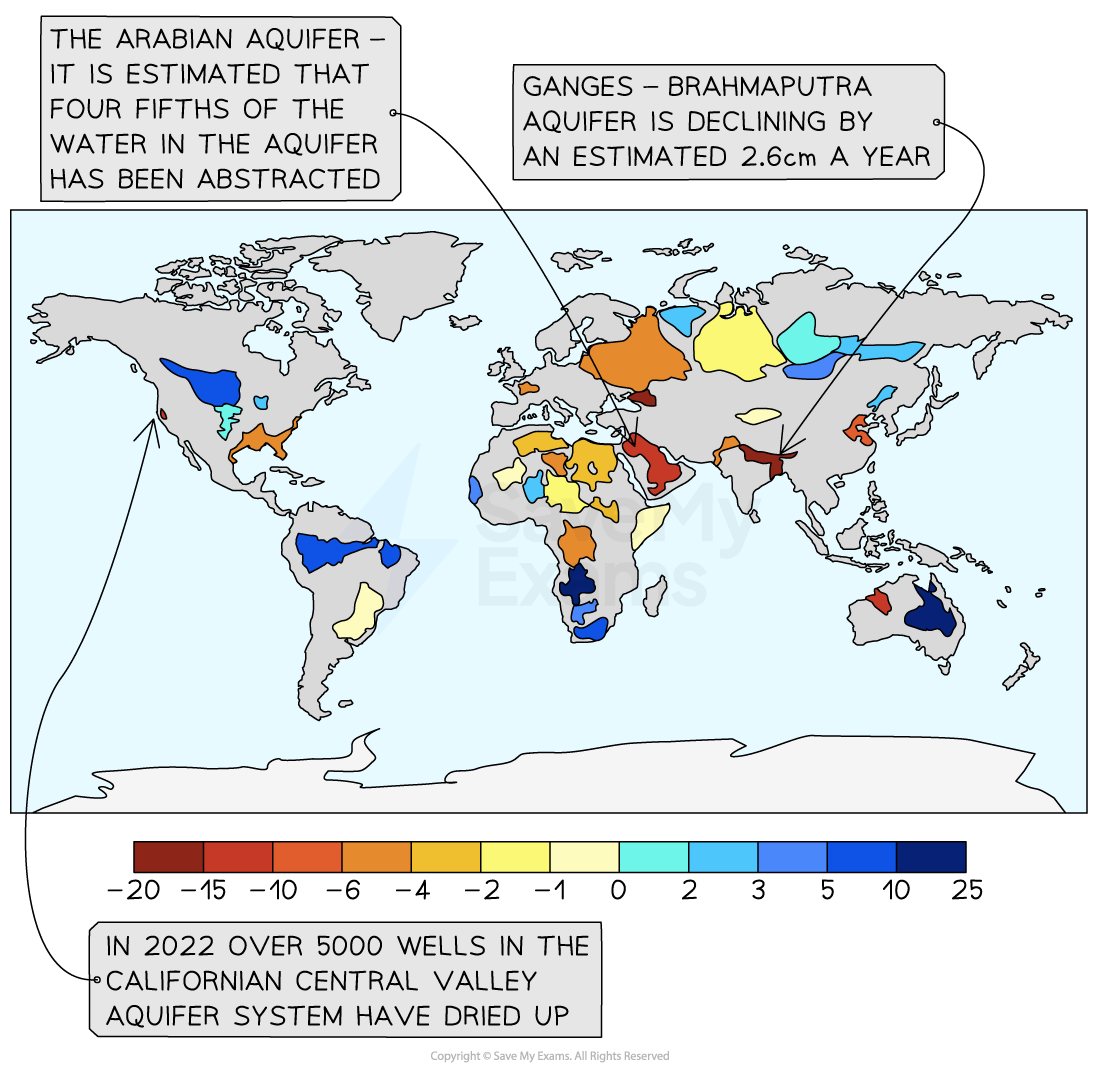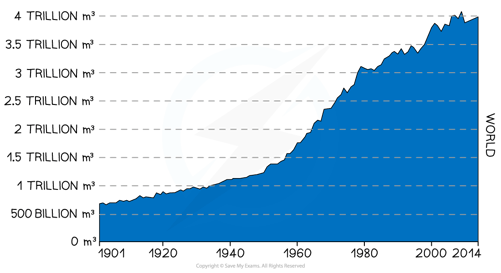Global Pattern of Water Stress
There is an increasing mismatch between water supply and demand leading to:
- Water stress (below 1,700m3 per person)
- Water scarcity (below 1000m3 per person)

Global water scarcity
- Water scarcity can be economic or physical:
- Economic scarcity occurs when there is water available but the infrastructure is not available to access the water
- About 1.6 billion people face economic water scarcity
- Physical scarcity occurs when there is greater demand for water than there is supply
- An estimated four billion people face severe water scarcity for at least one month a year
- Economic scarcity occurs when there is water available but the infrastructure is not available to access the water
- It is estimated by the UN that by 2025 over 65% of the world's population could be living with water stress
- The World Economic Forum rates water crises as one of the greatest global threats
- An estimated 30% of groundwater systems are being depleted

Water withdrawals as a share of available water




